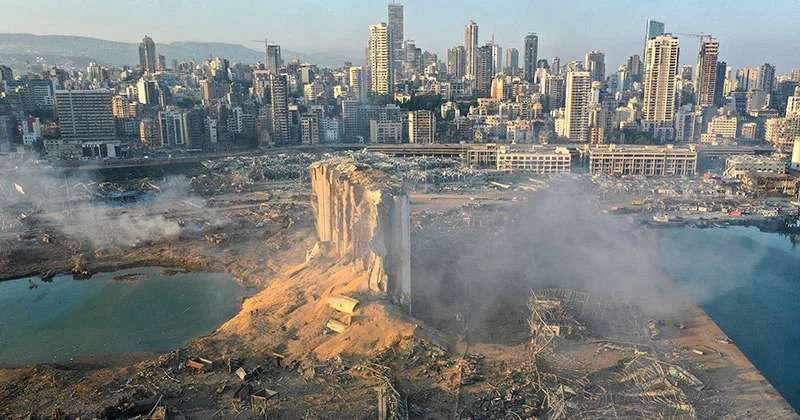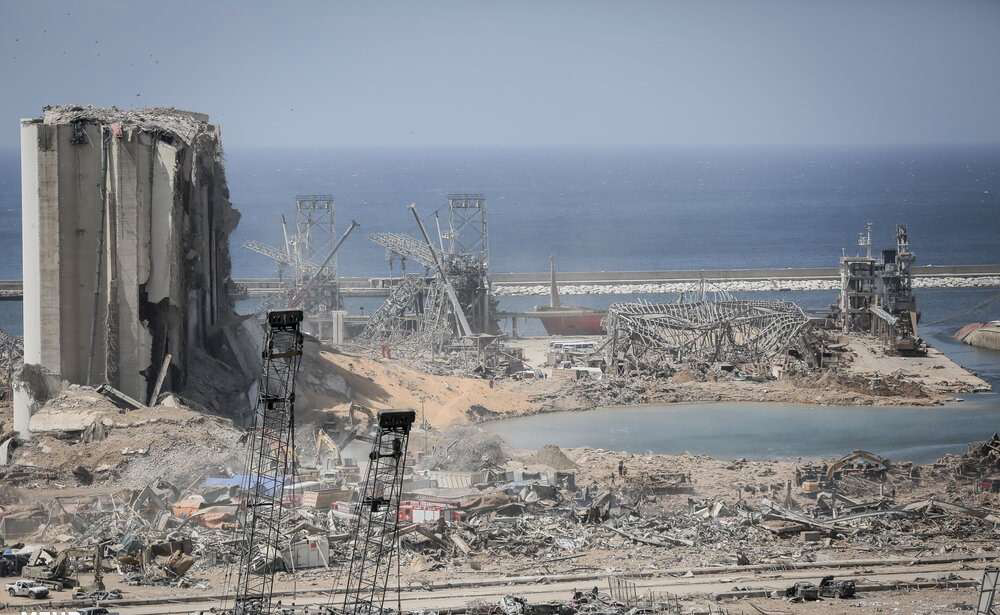
This explosion was not less than an apocalypse for the people of Lebanon. It came without any warning and killed scores of people and devasted the city. It claimed at least 140 lives and left thousands more injured. At least 300,000 have been left homeless by the blast, 80,000 of whom are children, according to UNICEF. Videos and photos taken from the event displayed a mushroom-like cloud of smoke encircling over the port before an explosion of red-brown smokes erupted into the sky.

In a report of CNN, Lebanon's Government has accused a massive quantity of carelessly stored Ammonium nitrate of the huge blast, the Ammonium nitrate is an industrial chemical commonly used around the world as an agricultural fertilizer, and in explosives for mining. About 2,750 metric tons of Ammonium nitrate had been hoarded at a Beirut port warehouse, just a few minutes walk from the city's shopping and nightlife districts since it was seized in 2014.
"The gas takes up a higher volume than the solid, there's a build-up of pressure and because of the heat released, the hot gas is higher in volume, so you get to the point that when it's confined it will suddenly explode and will release that pressure in a shockwave," Associate Professor Stewart Walker, from the school of Forensic, Environmental and Analytical Chemistry at Flinders University in Adelaide, Australia, told CNN. "In this instance, it appears that there was a fire and that fire has caused the Ammonium nitrate that had been stockpiled to combust, and when it's in a confined space, it releases a lot of hot gas," he said.

Prime Minister Hassan Diab said the chemical had been stored for the past six years "without preventive measures” and, promised an investigation. But the government of Lebanon has resigned in the middle of the rising outrage of citizens over the explosion, this announcement was made in a national TV address by Prime Minister Hassan Diab. Several people have accused the country's authorities at fault through their asserted failure and corruption. The government's policies to inspect were not enough for many who have lost all faith in the political authorities. Before the cabinet's resignation, a number of ministers had already assigned to step down.
Officials estimate that the explosion caused more than $3bn (£2.3bn) of damage and that Lebanon's collective economic losses may amount to $15bn. The country was already suffering a major economic downturn before the explosion, with families, pushed into poverty and hunger, with excessive taxes and corruption. Coronavirus had prohibited the protests, but the financial situation has continued to worsen and this particular explosion was seen by many as the deadly result of years of corruption and mismanagement.
